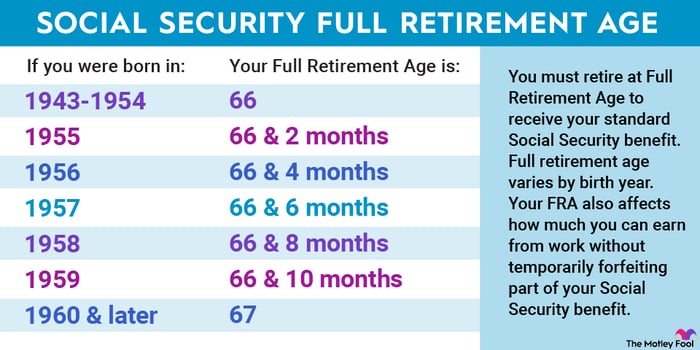Social Security has many great aspects, with the most notable being the millions of Americans it provides financial safety nets for in retirement. It's hard to argue about just how valuable it has been over the past decades.
After many years of paying Social Security payroll taxes, Social Security retirement benefits are well-earned for many. Unfortunately, not everyone pays Social Security payroll taxes. Some people are stay-at-home parents or spouses, some have long unemployment periods, and some work jobs not covered by Social Security.
Start Your Mornings Smarter! Wake up with Breakfast news in your inbox every market day. Sign Up For Free »
In either case, with no or limited work history, Social Security benefits may be minimal. Luckily, there's something that comes in handy in such situations: Social Security spousal benefits. Spousal benefits allow you to receive Social Security payments based on your spouse's work history and benefits.
If you're considering going the spousal benefits route, here are three things you should know beforehand.

Image source: Getty Images.
1. Who is eligible to receive Social Security spousal benefits?
You must meet three criteria to be eligible for Social Security spousal benefits. The first two must be met by everyone, regardless of the situation: You must be married for at least one year, and your spouse must currently receive retirement benefits.
The third box you must check is meeting one of the following three qualifications:
- You're at least 62 years old (the earliest age anyone can claim Social Security).
- You're caring for a child under 16.
- You're caring for a child with a disability that began before age 22.
To be eligible for spousal benefits, you must meet at least one of the criteria above. Meeting the one-year marriage requirement and your spouse's benefit-collecting requirements aren't enough.
Divorced individuals who were married for at least 10 years are also eligible to claim spousal benefits, as long as they haven't remarried.
2. Spousal benefit amounts depend on the primary spouse's monthly benefit amount
When you claim standard (retired worker) Social Security benefits, the amount you receive at your full retirement age is your primary insurance amount (PIA). Social Security spousal benefits are based on the PIA of the primary earning spouse.
Assuming the person claiming spousal benefits has reached their full retirement age, they can receive up to 50% of their spouse's PIA. For example, if the primary earning spouse has a PIA of $1,500, the other spouse can collect a maximum of $750 in spousal benefits.
Below are full retirement ages by birth years:

Image source: The Motley Fool.
If there's an age gap between someone and their spouse -- or if the primary claiming spouse prefers to claim benefits later -- the person who plans to claim spousal benefits can claim benefits based on their own work history, and then transition to spousal benefits once their partner claims benefits.
3. The age at which you claim spousal benefits affects how much you receive
You don't have to wait until your full retirement age to claim spousal benefits. You can claim as early as 62, but doing so will reduce your monthly benefit, depending on how far away you are from full retirement age.
Spousal benefits are reduced by 25/36 of 1% for each month before your full retirement age, up to 36 months. Each additional month after month 36 reduces your benefits by 5/12 of 1%.
For example, if your full retirement age is 67 and you claim spousal benefits at 62, your monthly check will be reduced by 35% (it would be 30% for retired workers' benefits). If you claim at 64, it will be reduced by 25% (20% for retired workers' benefits).
One thing to note is that, unlike retired workers' benefits, spousal benefits aren't increased if someone delays claiming them past their full retirement age. So, if you're planning to claim spousal benefits -- and are eligible to do so -- there's no reason to delay past your full retirement age.
The $22,924 Social Security bonus most retirees completely overlook
If you're like most Americans, you're a few years (or more) behind on your retirement savings. But a handful of little-known "Social Security secrets" could help ensure a boost in your retirement income. For example: one easy trick could pay you as much as $22,924 more... each year! Once you learn how to maximize your Social Security benefits, we think you could retire confidently with the peace of mind we're all after. Simply click here to discover how to learn more about these strategies.
View the "Social Security secrets" »
The Motley Fool has a disclosure policy.
The views and opinions expressed herein are the views and opinions of the author and do not necessarily reflect those of Nasdaq, Inc.


